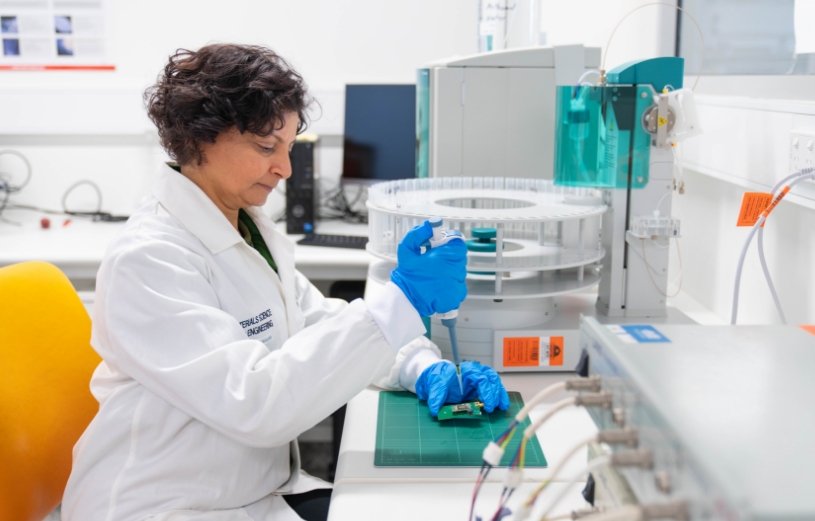
A team of engineers at Monash University, Australia has developed the first-of-a-kind finger-prick blood test with ‘needle-in-a hay-stack’ precision to detect the hallmark (protein) biomarkers in early Alzheimer’s Disease (AD) before symptoms progress.
The size of a credit card, it uses world-first patented sensor technology which can detect ultra low concentrations of disease markers in blood in minutes.
With the number of Australians diagnosed with dementia set to double by 2054, the quick blood test could become a vital tool to streamline diagnoses by giving general practitioners unprecedented access to non-invasive diagnostics.
Associate Professor Sudha Mokkapati from Monash Materials Science and Engineering, developed the proof-of-concept electronic sensor for point-of-care testing, removing the need for laboratory-based pathology tests, and making the process to diagnosis faster and more cost-effective.
“We’ve completed testing that shows the technology is highly advanced by design and capable of detecting ultra low levels of several disease biomarkers in blood. The next stage is to undertake the clinical validation needed to bring this a step closer to reality, and we’re reliant on further funding to progress this", said the researchers.
Key collaborator Associate Professor Matthew Pase, at Monash’s School of Psychological Sciences, said the device may facilitate earlier, more efficient diagnosis, enabling timely intervention and management of AD.




